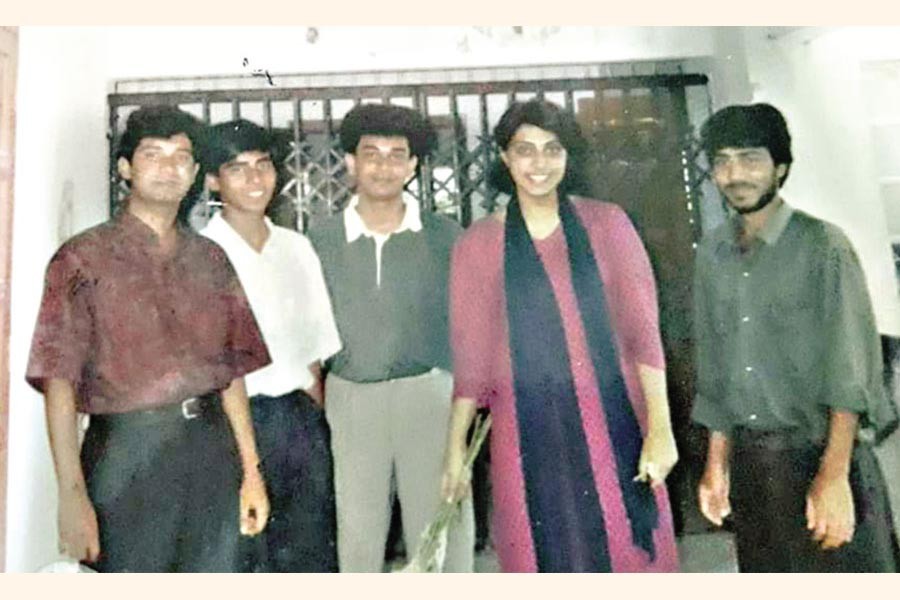Thirty three years ago, we began a new life at Dhaka University. We lived in a romanticised atmosphere where, one would believe, nothing is impossible in life and society. The challenge was to prove that higher education opens multiple horizons of knowledge and thinking. It is such an experience that every step we made on the campus has become nostalgia today.
Before the major (International Relations) classes, this author had a subsidiary (Political Science) class at the huge Lecture Theatre gallery on August 08, 1988, the first-ever at the university-level. Some of the newcomers wholeheartedly extended the hand of friendship. We found more acquaintances as the students from other disciplines of Arts and Social Sciences soon joined the classes of another subsidiary (English) subject.
For the next six years, we, the classmates, would celebrate the first day of attending classes, buying and offering sweetmeats. Years after leaving the campus, old friends reminisce about the joy of spending each remarkable moment of that promising life. The amazing part of it was the assembly of bright and brilliant minds inclusive of mufassil talents and urbane youth. We inspired one another to study varieties of things, apart from receiving guidance from the teachers.
Thus the university introduced a shy boy from a village called Sudampara in Nagarpur, Tangail, to the diverse world outside of the family.
The DU Central Library, the IR Department's seminar library, Modern Language Institute, the Public Library, the British Council, American Center (USIS), Goethe-Institut Bangladesh, Alliance Francaise, BIISS, New Market and Nilkhet book markets -- these were the resource centres for us to explore accrued knowledge. But adda (rendezvous) at dormitories and in open spaces was the lab for learning, sharing, debate, cultural refinement and career choice, not just for personal growth but for nation-building. Thanks to such activities, I tried to write some reflective pieces on newspaper and magazine pages during the student life.
We were so serious that while visiting a friend at DMCH, we had a small discussion on foreign policy issues with a course teacher present. These were equally fun-filled days -- when, on one occasion, we went to meet a senior bhai, a friend suddenly started dancing on the balcony of that house. Friendly guys hardly got lonely hours. We miss all the wonderful souls we met during that period.
It's more than an opportunity, in view of Bangladesh's socioeconomic conditions. Wherever we went, people showed admiration for university students. I sometimes ask myself what we have been able to deliver to repay our debts to this nation.
This is the generation who are the windows of the late 1980s and early 1990s, who've spelt out some of the national aspirations and raised issues of people's rights. It was a turbulent period marked by struggle for democracy in Bangladesh and throughout the world. We were perhaps too engrossed in happenings at home and abroad and attached to history in the making. The culture that alienates people or the situation that dwarfs man is not what we expected in our lifetime.
We've no regret either for the unforeseen collective failure to bring changes that we had dreamt of. History is not all about a few or only one era. We know it is important to reignite the Bangladesh dream, pursued and redefined during the formative years.
Individually, most of my contemporaries have shined in their careers. I am thankful for being able to carry out some journalistic works.
However, many students of our times who graduated from public institutions (there was no private university back then) have reasons to feel deprived of deserved positions to contribute more to society. Unassuming people have to reconcile their ideas with realities through endurance. And life is great as long as one's conscience is clear. We've at least a glorious past of the campus life and I think the best ones of our dreams are yet to come true.

- Saturday, 23 November 2024 |
- Today's FE |
- e-Paper |
- Beta Website

